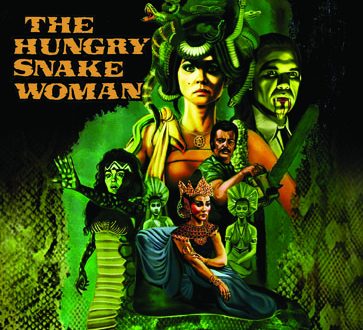Welcome to the shadowy fringes of the map, where the known world gives way to whispers and wonder. Here, in every corner of the globe, lurk tales of creatures that defy explanation and laugh in the face of science—these are the cryptids, the global legends that have captivated our imaginations for centuries.
Cryptids are the mythical creatures that reside just beyond the reach of scientific proof, inhabiting a space where folklore and mystery embrace. They are the subjects of blurry photographs and fervent testimonies, existing in that tantalizing realm between possibility and fantasy. From the dense forests of North America to the remote valleys of the Himalayas, every culture bears its own spectral stamp of unexplained phenomena in the form of these elusive beings.
As we embark on this chilling tour of “Cryptids Across Continents: Terrifying Legends From Around the Globe,” prepare to encounter the eerie echoes of the Jersey Devil’s wings in the Pine Barrens, feel the unsettling tremors of the Mngwa prowling the African savanna, and sense the icy touch of Antarctica’s Ningen as it slips beneath the frigid waves. These stories are not mere fables; they are a testament to the universal fascination with the unknown—a fascination that has endured as long as humanity itself.
So, I invite you to join me, if you dare, on this journey into the heart of darkness, where the shadows whisper and eyes peer from places unseen. Who knows what truths we may uncover as we peel back the layers of the world’s most tantalizing myths? The cryptids are calling, and their legends await.
Cryptid Legends by Continent
Cryptids are mysterious creatures that have been claimed to exist but have not been scientifically proven. They are often the subject of folklore, legends, and myths from different cultures around the world. Some of the most famous cryptids are Bigfoot, Yeti, Loch Ness Monster, and Chupacabra, but there are many more that are less known but equally fascinating. In this essay, we will explore some of the cryptids from various continents and the stories behind them.
North America
North America is home to some of the most iconic and terrifying cryptids in the world. Two of them are the Jersey Devil and the Mothman, which have inspired fear and curiosity among the locals and the outsiders alike.
Jersey Devil

The Jersey Devil is a cryptid that is said to inhabit the Pine Barrens of New Jersey. It is described as a winged creature with a horse-like head, a long tail, and cloven hooves. According to legend, it was born in 1735 as the thirteenth child of a woman named Mother Leeds, who cursed it and said “Let it be a devil”. The creature then killed its mother and siblings and flew away into the woods. Since then, it has been blamed for various livestock killings, strange noises, and sightings in the area. Some people believe that it is a supernatural being, while others think that it is a misidentified animal or a hoax.
Mothman



The Mothman is a cryptid that is said to haunt the Point Pleasant area of West Virginia. It is described as a large, humanoid creature with glowing red eyes and huge wings. It was first reported in 1966, when two couples saw it near an abandoned munitions plant. They claimed that it chased them at high speed and made a screeching sound. After that, more sightings and strange phenomena were reported, such as phone interference, animal mutilations, and UFOs. Some people also linked the Mothman to the collapse of the Silver Bridge in 1967, which killed 46 people, and speculated that it was a harbinger of doom or a warning sign. The Mothman has become a popular subject of books, movies, and festivals.
South America
South America is a continent rich in biodiversity and culture, but also in cryptids. Some of the most intriguing ones are the Mapinguari and the El Cuero, which have been part of the indigenous and colonial folklore for centuries.
Mapinguari

The Mapinguari is a cryptid that is said to roam the Amazon rainforest. It is described as a giant, hairy beast with a single eye, a mouth on its belly, and long claws. Some versions also say that it has a second mouth on the back of its head, or that it can turn invisible. According to legend, it was once a human shaman who angered the gods and was transformed into a monster. It is feared by the local tribes, who believe that it can rip apart trees and animals with its claws and devour humans with its belly mouth. The Mapinguari is also known as the “Roaring Animal” or the “Fetid Beast” because of the loud noise and the foul smell it produces.
El Cuero

El Cuero is a cryptid that is said to inhabit the lakes and rivers of Chile and Argentina. It is described as a large, flat creature with a leathery skin, a snake-like head, and tentacles. Its name means “The Leather” or “The Hide” in Spanish. According to legend, it is a shape-shifter that can disguise itself as a rock or a piece of leather on the water surface. It then lures unsuspecting victims, such as animals or humans, and drags them underwater with its tentacles. It then sucks their blood and organs through its mouth, leaving only the skin and bones behind. El Cuero is also known as the “Water Tiger” or the “Lake Animal” because of its predatory nature.
Europe
Europe is a continent with a long and rich history, but also with many legends and myths about cryptids. Some of the most fascinating ones are the Kraken and the Tatzelwurm, which have been feared and admired by sailors and mountaineers alike.
Kraken
The Kraken is a cryptid that is said to dwell in the deep waters of the North Atlantic Ocean. It is described as a colossal, squid-like creature with a massive body, long tentacles, and sharp teeth. According to legend, it can attack ships and drag them down to the depths with its tentacles. It can also create huge whirlpools and waves with its movements. The Kraken has been mentioned in various Norse sagas, medieval chronicles, and pirate tales. It has also inspired many works of art and literature, such as the famous poem “The Kraken” by Alfred Lord Tennyson.
Tatzelwurm

The Tatzelwurm is a cryptid that is said to inhabit the Alps of Central and Southern Europe. It is described as a reptilian creature with a cat-like head, a long body, and two or four legs. Some versions also say that it has wings, horns, or a venomous bite. According to legend, it can move fast and jump high, and it can prey on livestock and humans. It is also said to emit a loud roar or hiss when threatened. The Tatzelwurm has been reported by various witnesses, such as hunters, hikers, and soldiers. It has also been depicted in paintings, sculptures, and coats of arms.
Africa
Africa is a continent with a diverse and ancient culture, but also with many mysteries and legends about cryptids. Some of the most intriguing ones are the Ninki Nanka and the Kongamato, which have been feared and revered by the local people for generations.
Ninki Nanka

The Ninki Nanka is a cryptid that is said to live in the swamps and rivers of West Africa. It is described as a huge, dragon-like creature with a long neck, a horned head, and scales. According to legend, it is a very powerful and dangerous animal that can cause death or illness to anyone who sees it or hears its roar. Some people believe that it is a guardian of the waterways, while others think that it is a cursed being that brings misfortune. The Ninki Nanka has been reported by various witnesses, such as fishermen, hunters, and travelers. It has also been featured in some documentaries and TV shows.
Kongamato
The Kongamato is a cryptid that is said to fly over the skies of Central and Southern Africa. It is described as a large, pterosaur-like creature with a wingspan of up to 7 meters, a beak full of teeth, and a reddish or black color. According to legend, it is a very aggressive and territorial animal that can attack and kill humans and animals with its beak or claws. Some people believe that it is a prehistoric survivor, while others think that it is a supernatural entity or a misidentified bird. The Kongamato has been reported by various witnesses, such as explorers, miners, and pilots. It has also been mentioned in some books and articles.
Asia
Asia is a continent with a vast and diverse culture, but also with many mysteries and legends about cryptids. Some of the most fascinating ones are the Mongolian Death Worm and the Orang Bati, which have been feared and admired by the local people for centuries.
Mongolian Death Worm

The Mongolian Death Worm is a cryptid that is said to live in the Gobi Desert of Mongolia and China. It is described as a worm-like creature with a length of up to 1.5 meters, a reddish-brown color, and no visible eyes or mouth. According to legend, it is a very deadly and venomous animal that can kill humans and animals with its electric shock or its corrosive spit. Some people believe that it is a sacred and mysterious being that must not be disturbed, while others think that it is a natural or alien phenomenon. The Mongolian Death Worm has been reported by various witnesses, such as nomads, travelers, and scientists. It has also been featured in some movies and games.
Orang Bati

The Orang Bati is a cryptid that is said to fly over the islands of Indonesia, especially Seram. It is described as a humanoid creature with a wingspan of up to 3 meters, a furry body, and a monkey-like face. According to legend, it is a nocturnal and carnivorous animal that can kidnap and eat children and animals with its claws. Some people believe that it is a demonic or cursed being that must be avoided, while others think that it is a mythical or endangered species. The Orang Bati has been reported by various witnesses, such as villagers, missionaries, and tourists. It has also been mentioned in some books and documentaries.
Oceania
Oceania is a continent with a diverse and ancient culture, but also with many mysteries and legends about cryptids. Some of the most fascinating ones are the Yowie and the Burrunjor, which have been part of the Aboriginal Australian lore for millennia.
Yowie
The Yowie is a cryptid that is said to live in the forests and mountains of Australia. It is described as a hairy, ape-like creature with a height of up to 3 meters, a human-like face, and large feet. According to legend, it is a shy and elusive animal that can communicate with humans and other animals. Some people believe that it is a descendant of an ancient hominid species, while others think that it is a spiritual or mythical being. The Yowie has been reported by various witnesses, such as Aboriginal people, settlers, explorers, and tourists. It has also been featured in some books and TV shows.
Burrunjor

The Burrunjor is a cryptid that is said to roam the outback and the coast of Australia. It is described as a large, reptilian creature with a length of up to 10 meters, a long tail, and sharp teeth. According to legend, it is a fierce and dangerous animal that can hunt and kill humans and animals with its bite or claws. Some people believe that it is a survivor of an extinct dinosaur species, while others think that it is a natural or alien phenomenon. The Burrunjor has been reported by various witnesses, such as Aboriginal people, hunters, farmers, and pilots. It has also been mentioned in some articles and podcasts.
OK, here is the final part of the essay.
Antarctica
Antarctica is a continent with a harsh and mysterious environment, but also with many mysteries and legends about cryptids. Some of the most intriguing ones are the Ningen and the Orca-men, which have been feared and admired by the polar explorers and researchers.
Ningen

The Ningen is a cryptid that is said to live in the icy waters of Antarctica. It is described as a huge, humanoid creature with a length of up to 30 meters, a pale white color, and no facial features. According to legend, it is a silent and elusive animal that can blend in with the icebergs and the snow. Some people believe that it is a new or undiscovered species, while others think that it is a paranormal or extraterrestrial being. The Ningen has been reported by various witnesses, such as whalers, fishermen, and scientists. It has also been featured in some magazines and videos.
Orca-men

The Orca-men are cryptids that are said to inhabit the islands and the coasts of Antarctica. They are described as hybrid creatures with a human-like torso and an orca-like tail, fins, and head. According to legend, they are intelligent and social animals that can communicate with humans and other orcas. Some people believe that they are a result of genetic engineering or mutation, while others think that they are a mythical or ancient race. The Orca-men have been reported by various witnesses, such as sailors, explorers, and researchers. They have also been mentioned in some books and podcasts.
Analysis of Cryptid Myths
Cryptids are not only fascinating creatures, but also powerful symbols of human nature and culture. They reflect our fears, hopes, dreams, and imagination. They also reveal our curiosity, creativity, and desire for exploration. In this section, we will offer some insights into why these cryptid legends persist and what they reveal about us.
Common Themes Across Cultures
One of the most striking aspects of cryptid myths is that they share some common themes across different cultures and regions. For example, many cryptids are based on animals that are either extinct, rare, or unfamiliar to the local people, such as dinosaurs, giant squids, or exotic mammals. This suggests that cryptids are a way of filling the gaps in our knowledge and understanding of the natural world, as well as expressing our awe and wonder at its diversity and mystery.
Another common theme is that many cryptids are hybrids or chimeras, that is, combinations of different animals or humans and animals, such as the Minotaur, the Sphinx, or the Centaur. This suggests that cryptids are a way of exploring our identity and relationship with other living beings, as well as expressing our creativity and imagination.
A third common theme is that many cryptids are associated with supernatural or paranormal phenomena, such as magic, curses, or aliens. This suggests that cryptids are a way of coping with our fears and uncertainties, as well as expressing our beliefs and values.
Psychological and Sociological Explanations
Cryptid myths can also be explained by various psychological and sociological factors that influence our perception and interpretation of reality. For example, some cryptid sightings can be attributed to optical illusions, hallucinations, misidentification, or hoaxes. These can be caused by factors such as poor lighting, distance, stress, drugs, or deception. Some cryptid stories can also be influenced by cognitive biases, such as confirmation bias, availability heuristic, or pareidolia. These are mental shortcuts or errors that make us more likely to see what we expect, want, or fear to see, rather than what is actually there.
Another factor that can explain cryptid myths is the role of social and cultural influences, such as folklore, media, and popular culture. These can shape our expectations, preferences, and attitudes towards cryptids, as well as provide us with sources of inspiration, information, and entertainment. For example, some cryptids are based on or influenced by ancient myths, legends, or religious stories, such as dragons, unicorns, or angels. Some cryptids are also featured or popularized by modern books, movies, games, or shows, such as Harry Potter, Jurassic Park, or The X-Files.
Role of Cryptids in Modern Media and Popular Culture
Cryptids are not only a part of our past, but also a part of our present and future. They play an important role in modern media and popular culture, as they provide us with a variety of benefits and opportunities. For example, cryptids can:
- Stimulate our curiosity and interest in the unknown and the mysterious, as well as encourage us to learn more about the natural world and its mysteries.
- Enhance our creativity and imagination, as well as inspire us to create our own stories, artworks, or inventions based on cryptids or their themes.
- Entertain and educate us, as well as provide us with a source of fun, excitement, and escapism from our daily lives and problems.
- Challenge and expand our worldview, as well as expose us to different perspectives, cultures, and values that are related to cryptids or their themes.
- Connect and bond us, as well as provide us with a common topic, interest, or hobby that we can share with others who are also interested in cryptids or their themes.
Cryptids are more than just mythical creatures. They are a reflection of ourselves and our culture. They are a manifestation of our human nature and our human potential. They are a part of our history and our future. They are a part of our horror and our fascination.
What do you think?
Cryptids are a global phenomenon that have captivated and intrigued people for centuries. They are a source of mystery, wonder, fear, and fascination. They are a part of our culture, our history, and our imagination. They are a part of our horror and our fascination.
We hope you enjoyed this article and learned something new about the world of cryptids. We invite you to share your own local cryptid stories or myths in the comments section below. What are some of the cryptids that you have heard of or encountered in your region? How do they compare to the ones we discussed in this article? Do you believe in their existence or not? Why or why not?
We would love to hear from you and learn more about the cryptids that you are interested in or curious about. Please leave a comment and join the discussion. Thank you for reading and stay tuned for more articles on HorrorFacts.com, where you can find the best and most informative content on all things spooky and supernatural.


























































![Mason Ramsey – Twang [Official Music Video] Mason Ramsey – Twang [Official Music Video]](https://i.ytimg.com/vi/xwe8F_AhLY0/maxresdefault.jpg)






















